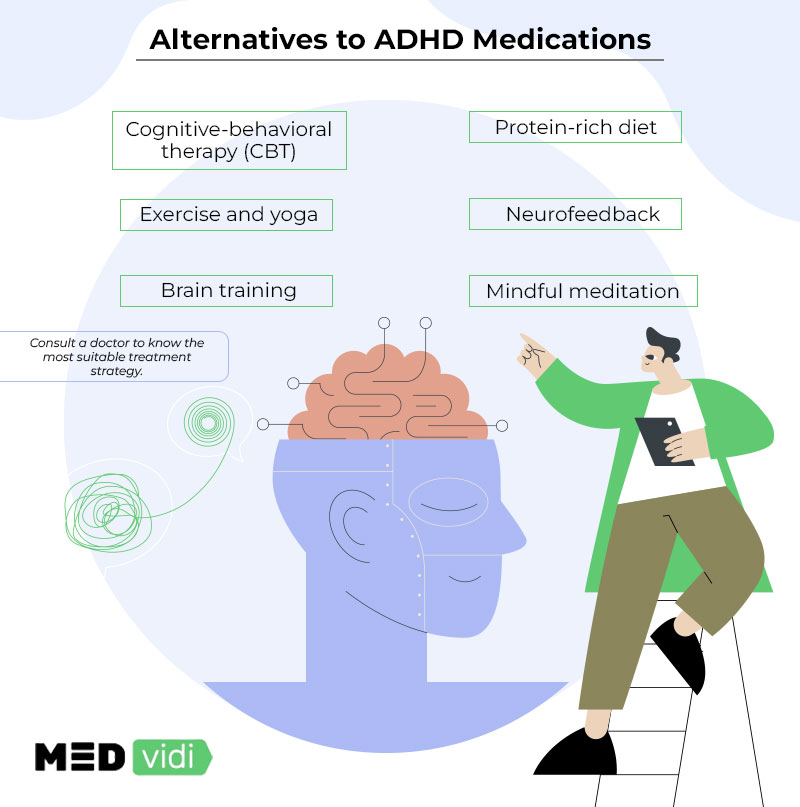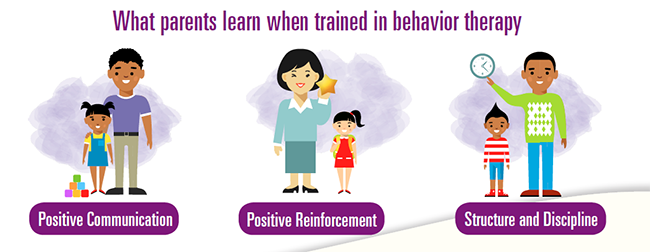The Benefits of Individualized ADHD Treatment Plans for Better Results
The application of individualized ADHD therapy strategies has emerged as a crucial strategy in enhancing healing end results for people impacted by this problem (ADHD treatment). By recognizing the distinct indications of ADHD in each person, these tailored interventions promote greater interaction and inspiration, inevitably leading to more efficient coping approaches.
Recognizing ADHD Variability
Although Attention-Deficit/Hyperactivity Condition (ADHD) is commonly viewed as a single condition, its indications can differ substantially among individuals. This variability is affected by a series of elements, including age, gender, existing side-by-side problems, and ecological contexts. Children with ADHD may exhibit hyperactive habits, while adults may predominantly battle with focus deficiencies. Sex differences additionally play a role, as males are much more frequently identified with ADHD and commonly present more obvious signs, whereas women may present with less noticeable inattentiveness.
In addition, individuals with ADHD might experience a range of emotional and behavior obstacles, such as anxiety or oppositional defiance, that can make complex medical diagnosis and therapy. The interaction of these aspects can lead to varied experiences of ADHD, requiring a nuanced understanding of the problem. It is also worth noting that ADHD can offer differently across numerous social contexts, influencing exactly how signs are identified and addressed. This understanding emphasizes the importance of acknowledging ADHD as a multifaceted problem, which calls for personalized approaches to treatment that take into account the unique requirements and experiences of each individual.
Key Parts of Customization
Customized ADHD therapy plans are based in numerous essential parts that ensure efficient monitoring of the disorder. First, a thorough analysis is essential, involving standard score ranges, interviews, and behavioral observations. This extensive assessment enables medical professionals to recognize the person's unique signs, staminas, and obstacles.
2nd, the involvement of several stakeholders, including moms and dads, teachers, and the person, adds to an alternative view of the person's needs. Cooperation fosters a supportive environment that can adapt to the individual's context and lifestyle.
Third, treatment strategies must be adaptable and adaptable, permitting for alterations based on ongoing feedback and the individual's evolving needs. This adaptability enables the assimilation of various restorative strategies, such as behavior treatments, psychoeducation, and drug monitoring.
Additionally, cultural and contextual elements should be thought about. Recognizing the person's history, values, and preferences guarantees that the treatment matters and considerate.
Finally, normal follow-ups and analyses are necessary to check progress and make needed adjustments. By concentrating on these key elements, individualized ADHD therapy strategies can significantly enhance the performance of treatments, causing enhanced outcomes for people with ADHD.
Improved Engagement and Inspiration
To properly advertise enhanced involvement and inspiration in individuals with ADHD, it is important to include techniques that resonate with their passions and staminas. Individualized treatment strategies that line up with an individual's enthusiasms can lead to raised engagement in healing activities, fostering a sense of ownership and interest for the procedure.
Using interactive and creative approaches can also considerably enhance inspiration. For instance, integrating gamification elements or real-world applications of abilities can make jobs extra enticing and relevant. This not just records interest but also enhances finding out via satisfying experiences.
In addition, setting attainable and purposeful objectives tailored to the person can boost motivation. When individuals see betterhelp counseling their progression towards personally considerable purposes, they are more likely to stay involved. Regular comments and recognition of success can additionally receive inspiration, developing a favorable feedback loop that encourages ongoing initiative.
Last but not least, promoting an encouraging atmosphere where people really feel recognized and valued can considerably impact their interaction levels. When this therapy strategies are developed collaboratively, incorporating input from the person, they are most likely to feel purchased their trip, ultimately bring about improved end results in managing ADHD.
Improved Coping Approaches
Developing boosted coping strategies is essential for people with ADHD, as it outfits them with effective tools to navigate everyday obstacles. A customized therapy strategy enables the identification of details coping mechanisms customized to the person's distinct demands and conditions - ADHD treatment. Strategies such as mindfulness, time monitoring abilities, and organizational strategies can be incorporated right into day-to-day regimens, cultivating a feeling of control and decreasing stress home and anxiety
Mindfulness practices, consisting of meditation and deep-breathing exercises, assistance people with ADHD focus their attention and control their feelings. Time administration approaches, such as utilizing timers or breaking jobs into smaller, convenient steps, can reduce feelings of overwhelm. Furthermore, organizational tools like planners and checklists can enhance effectiveness and responsibility.
Long-lasting Positive Outcomes
Carrying out individualized ADHD therapy strategies can bring about considerable long-lasting favorable end results for people. These customized strategies, which think about distinct signs and symptoms, choices, and life circumstances, promote much more effective administration of ADHD signs and symptoms gradually. By concentrating on the specific requirements of the person, these strategies improve adherence to treatment procedures and foster greater involvement in healing tasks.

In addition, individualized treatment plans can substantially decrease the danger of comorbid conditions, such as anxiety and clinical depression, which are typically connected with ADHD. Early intervention and constant support help people construct resilience and coping techniques, advertising general psychological health and wellness.
Eventually, the long-term positive end results of individualized ADHD treatment prepares not just improve the lifestyle for individuals however also add to their overall wellness and success in various life domains. This holistic method underscores the value of customized care in handling ADHD effectively.
Final Thought

Comments on “Telehealth Psychiatrist Appointments for Accessible Mental Health Support”